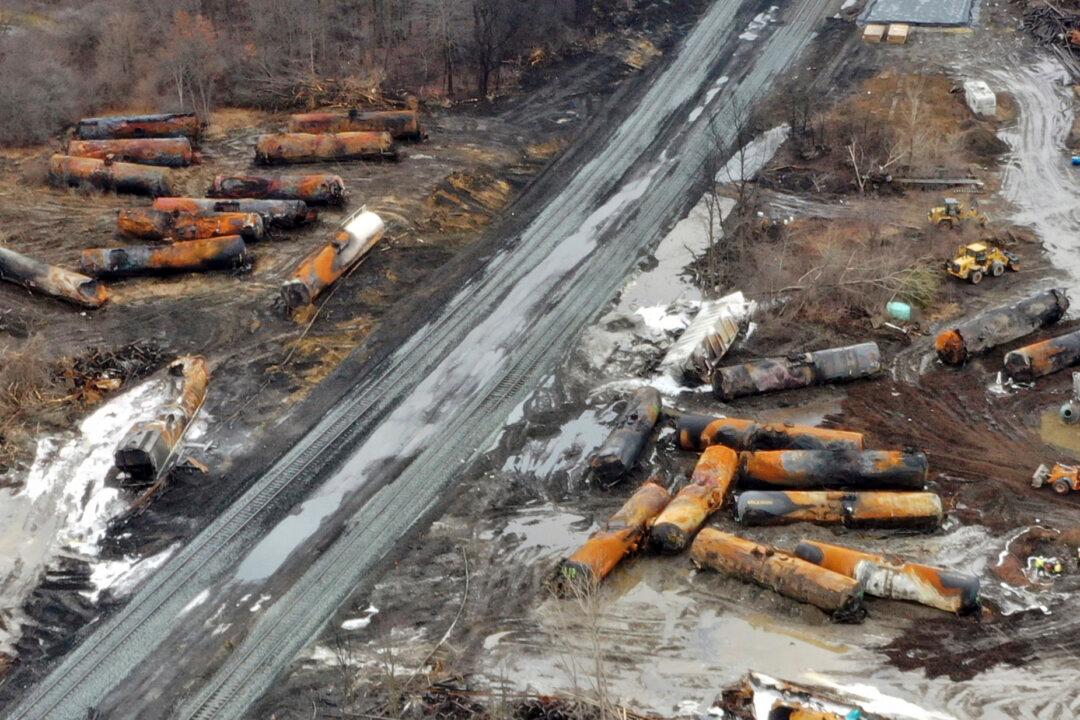Rail operator Norfolk Southern Railway Company faces multiple class-action lawsuits alleging negligence in the Feb. 3 train derailment in East Palestine, Ohio. But past lawsuits and accident reports from the National Transportation Safety Board (NTSB) show that Norfolk Southern doesn’t operate in a vacuum.
Unions, contractors, rail customers, and government regulations all have a hand in the operation of this massive system that transports vital—and often dangerous—goods across the nation. A look at completed investigations into past incidents provides a window into the rail industry and how things may play out in Ohio.





